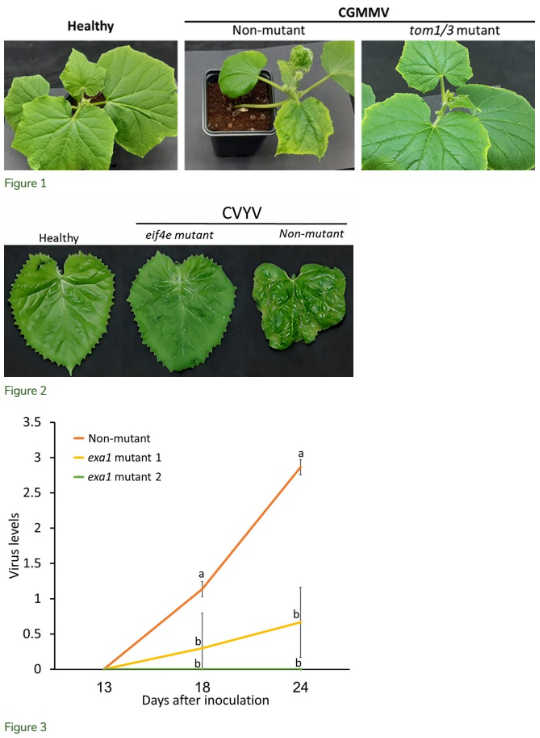Viruses are obligatory parasites whose existence completely depends on host cell components. Plant genes encoding proteins essential for viral infection are termed susceptibility (S) genes. These genes serve as attractive targets for the development of new viral resistances. Using CRISPR/Cas9, we mutated S genes in various cucurbit and solanaceous crops, increasing resistance against economically significant viruses.
The cucumber green mottle mosaic virus (CGMMV) is devastating in cucurbits, causing substantial damage to yield and fruit. By mutating the host S genes TOM1 and TOM3, we dramatically increased the plant resistance against the virus (Figure 1). Another important virus in cucurbit crops is cucumber vein yellowing virus (CVYV). By targeting a regulatory sequence of eukaryotic initiation factor 4e (eIF4e), we increased resistance against this pathogen (Figure 2). Also, we were able to generate Potexvirus resistance in tomato plants by targeting the EXA1 gene (Figure 3). These genome-edited plants can serve as useful tools in mitigating several important viral diseases.
Project Researcher: Dr. Ziv Spiegelman.
Research partners: Dr. Diana Leibman and Dr. Hagit Hak.

